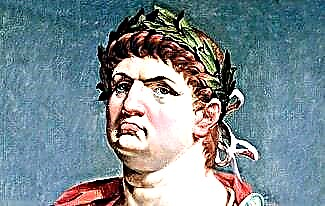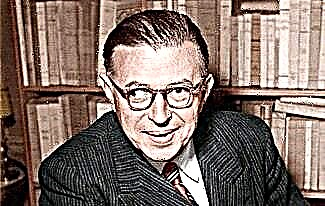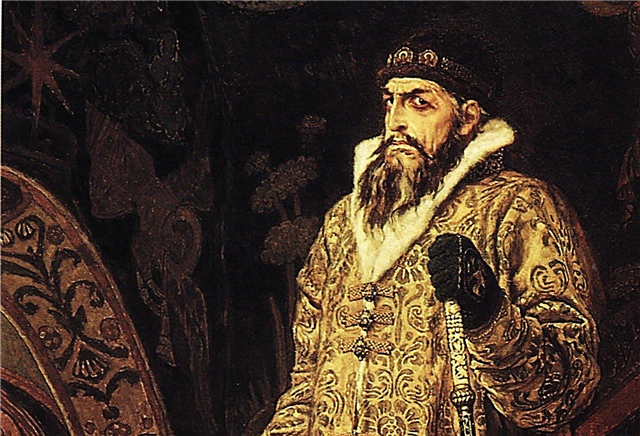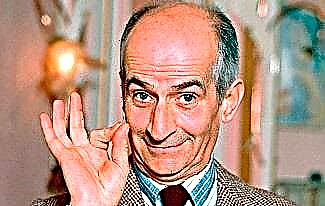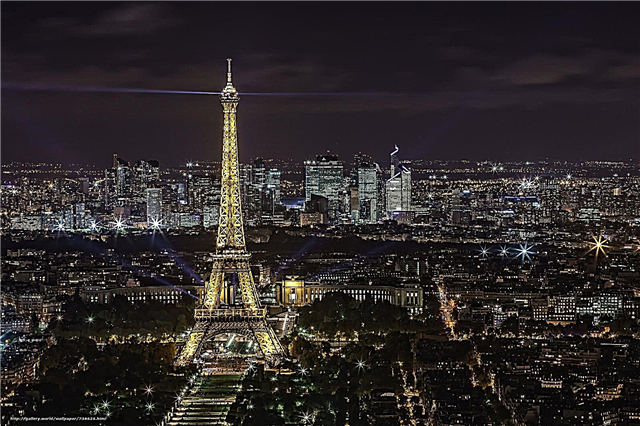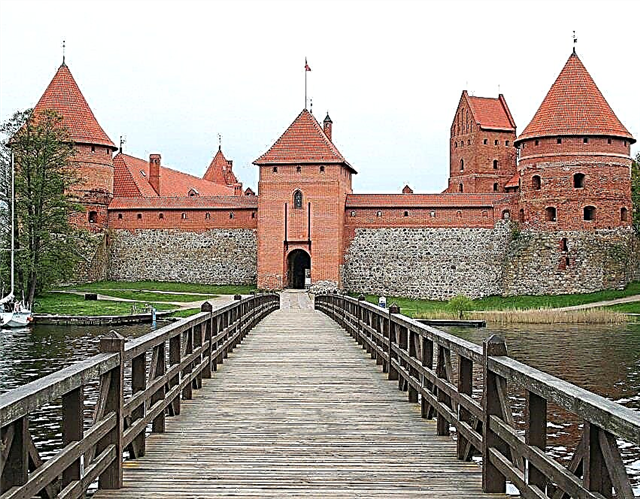Vladimir Galaktionovich Korolenko (1853 - 1921) was and remains one of the most underestimated Russian writers. Tolstoy, and after his death, the writer's work lost the most important dignity for the literature of the revolutionary era - sharpness. In most of Korolenko's works, heroes are heroes only in the literary sense, like characters. The literature of the 1920s, and even later, needed completely different characters.
Nevertheless, no one can take away from the works of V.G.Korolenko two main advantages: practically photographic life accuracy and amazing language. Even his fairy tales are more like stories about real life, and even such works as “Siberian sketches and stories” simply breathe reality.
Korolenko lived a very busy life, wandered in exile, abroad, deliberately left the bustle of the capital's life. Everywhere he found time and energy to help others, taking little care of himself. His own creativity, unfortunately, was something like a hobby for him: there are no other activities, you can write something. Here is a very characteristic quote by which you can assess both the depth of thought and the language of the writer:
“Reading humanity is approximately the surface of rivers in relation to the entire space of the continents. The captain sailing this part of the river is quite famous in this part. But as soon as he drives off a few miles away from the coast ... There is another world: wide valleys, forests, villages scattered over them ... Above all this winds and thunderstorms rush with noise, life goes on, and never once has the usual sounds of this life mixed in with the name of our captain or the "world famous" writer. "

1. Father Korolenko was, for his time, pathologically honest. In 1849, in the course of the next reform, he was appointed a district judge in the provincial city. This position implied, with a certain skill, a quick transition to provincial judges and further promotions. However, Galaktion Korolenko remained stuck in his rank until his death. Vladimir remembered the scene after which his father cried out: “Because of you, I became a bribe-taker!” The poor widow was suing the count over the inheritance - she was married to the count's late brother. Several such cases are described in Russian literature - the plaintiff usually did not shine. But Korolenko Sr. decided the case in favor of the woman, who immediately became almost the richest in the district. The judge rejected all attempts to express gratitude financially. Then the rich widow watched him when he was not at home, brought numerous and voluminous gifts, and ordered them to be brought into the house immediately. There were so many gifts that they did not have time to disassemble them by the time their father returned - fabrics, dishes, etc., were partly left in the living room. An eerie scene for children followed, which ended only with the arrival of a cart, onto which gifts were loaded for return. But the younger daughter, with tears in her eyes, refused to part with the large doll she had inherited. It was then that Korolenko, the father, shouted a phrase about bribery, after which the scandal ended.
2. Vladimir had an older and younger brother and two younger sisters. Two more sisters died very young. Such a survival rate for children can be considered a miracle - Galaktion Korolenko spent his youth in such a way that he had no illusions about female honor. Therefore, he took a neighbor's teenage girl as his wife - the future mother of Vladimir Galaktionovich at the time of marriage was barely 14 years old. A few years after the wedding, Korolenko Sr.was very mad, and paralysis broke half of his body. After the misfortune, he settled down, and Vladimir himself remembered him as a calm, mother-loving person. His main eccentricity was concern for the health of others. He was constantly worn either with fish oil, or with dressings (medicinal solutions) for hands, or with blood purifiers, or with needle massagers, or with homeopathy ... theoretically contained homeopathic doses of arsenic. This did not affect his health in any way, but the homeopathic views of Galaktion Korolenko were refuted.
3. Reading the works of Korolenko, it is difficult to imagine that he himself learned to read from Polish books, studied in Polish at the boarding school, while children had to communicate outside of class either in German or in French. The pedagogy was simple to the point of amazement: those who said a word or phrase in the “wrong” language on that day were hung a rather heavy sign around their neck. You could get rid of it - hang it around the neck of another intruder. And, according to the wisdom of the ancients, the punishment was carried out according to the principle "Woe to the vanquished!" At the end of the day, the student with the plaque around his neck received a painful blow to the arm with a ruler.

4. The first writer in the Korolenko family was Vladimir's elder brother Yulian. The family then lived in Rovno, and Yulian at random sent provincial sketches to the newspaper "Birzhevye Vedomosti", which had just begun to be published. Vladimir rewrote his brother's creations. This "prose of life" was not only published, each time sending a number to Julian, but also paid serious fees for it. Once Julian received a transfer for 18 rubles, despite the fact that officials received both 3 and 5 rubles a month.
5. V. Korolenko's literary activity began when he was a student at the Technological Institute. However, his work in the magazine Russkiy Mir can be called “literature” rather conditionally - Korolenko wrote “sketches of provincial life” for the magazine irregularly.
6. After studying at the Technological Institute for only a year, Korolenko moved to Moscow, where he entered the Petrovskaya Academy. Despite its loud name, it was an educational institution that provided very average knowledge, mainly in applied professions. The morals in the academy were very free, and it was in it that student Korolenko received his first experience of fighting the authorities. The reason was absolutely trivial - a wanted student was arrested. However, his colleagues decided that such actions on the territory of a higher educational institution were arbitrary, and Korolenko wrote an address (appeal) in which he called the administration of the academy a branch of the Moscow gendarme administration. He was arrested and sent under police supervision to Kronstadt, where Vladimir's mother lived then.
7. Unfortunately, the social activities of Vladimir Galaktionovich Korolenko (1853 - 1921) overshadowed his literary works. Anatoly Lunacharsky, already after the Bolsheviks seized (or, if anyone wants, seized) power in Russia after the Provisional Government, considered V. Korolenko the most worthy contender for the sweat of the president of Soviet Russia. For all Lunacharsky's penchant for exaltation, his opinion is worth paying attention to.
8. Another interesting fact. At the end of the 19th and the beginning of the 20th centuries, the enlightened public of Russia believed that of the then living writers, Tolstoy and Korolenko were worthy of mention. Somewhere near, but lower, was Chekhov, higher could be some of the dead, but there was no one living next to the titans.
9. Honesty and impartiality of Korolenko is well illustrated by the story of the court of honor over Alexei Suvorin, which took place in the summer of 1899 in St. Petersburg. Suvorin was a very talented journalist and playwright and in his youth belonged to liberal circles. As often happens, in his mature years (at the time of the events he was already over 60) Suvorin revised his political views - they became monarchist. The liberal public hated him. And then, during the next student unrest, Suvorin published an article in which he argued that it would be better for students to study more diligently than to interfere in politics. For this sedition he was brought to the court of honor of the Writers' Union. It included V. Korolenko, I. Annensky, I. Mushketov and several other writers. Almost the entire public, including Suvorin himself, was awaiting a guilty verdict. However, Korolenko managed to convince his colleagues that, despite the fact that Suvorin's article was unpleasant for them, he freely expresses his private opinion. The persecution of Korolenko immediately began. In one of the appeals, 88 signatories demanded that he give up public and literary activities. Korolenko wrote in a letter: “If not 88, but 88 880 people were protesting, we would still“ have the civic courage ”to say the same ...”

10. Vladimir Galaktionovich, by virtue of his professional activity, saw many lawyers, but the greatest impression on him was made by the advocacy of the exiled nobleman Levashov. During Korolenko's stay in exile in Biserovskaya volost (now it is the Kirov region), he learned that not only politically unreliable, but also simply objectionable people began to be exiled in the administrative order. Levashov was the son of the richest man, who annoyed his father with his antics on the verge of legality. The father asked to be sent to the north. The young man, who received good support from home, turned around with might and main. One of his fun was representing the interests of indigenous people in court. He made florid speeches that fully admitted the guilt of his client. These speeches and the Russian people understood in two words in the third, where the Votyakam. In the end, Levashov asked the court to reduce the punishment out of mercy. The judge usually yielded, and the clients burst into tears on Levashov's chest, thanks to him for saving him a terrible punishment.
11. In 1902, peasant unrest broke out in the vicinity of Poltava. It was the same senseless and merciless Russian revolt: the estates were ravaged and plundered, the managers were beaten, the barns were set on fire, etc. The unrest was quickly suppressed by means of lashes alone. The instigators were tried. Korolenko then already enjoyed great authority, and the lawyers of the peasants brought to trial consulted in his house. Much to Korolenko's surprise, the lawyers who came from the capitals were not at all going to work in court. They only wanted to express a loud protest against the lawlessness, get into the newspapers, refusing to defend the defendants. The luminaries of jurisprudence did not care that the peasants could receive many years of hard labor. With great difficulty, the writer and the Poltava lawyers managed to persuade the capital's lawyers not to interfere in the process. Local lawyers defended each defendant on the merits, without political demarches, and some of the peasants were even acquitted.
12. The solemn celebration of the 50th anniversary of the birth and the 25th anniversary of V. Korolenko's literary activity has turned into a great cultural holiday in St. Petersburg. Its scale reveals the meaning of both the personality of the writer and his works. Already in Poltava, Korolenko received a whole heap of congratulations. Oral and written congratulations were not enough in the capital. Suffice it to say that 11 magazines and newspapers of various thematic orientation and political views took part in the organization of the ceremonial meetings and concerts.
13. Between the Russo-Japanese War and the First World War, Korolenko's patriotic views drifted from a desire to defeat the tsarist regime in the first war to full support for Russia in the second. For this, the writer was rather harshly criticized by V.I.Lenin.
14. V. Korolenko was personally acquainted with Azef and Nikolai Tatarov - two of the main secret police provocateurs from among the leaders of the Socialist-Revolutionary Party. He met Yevno Azev in freedom, and crossed paths with Tatarov during his exile in Irkutsk.
15. Having traveled through the whole of Siberia in exile, Korolenko proved to himself that he would not be lost in any conditions. Closer to the European part of Russia, he amazed the local residents with the skill of a shoemaker - he and his brother, while still at large, agreed to master various crafts. In Yakutia, where the skill of a shoemaker was not required, he turned into a farmer. Wheat plowed by him with other exiled virgin lands, gave a crop of 1:18, which was then unthinkable even for the Cossack regions of the Don and Kuban.
16. The writer lived for almost 70 years, but created his most significant literary works during the so-called. "Nizhny Novgorod decade". In 1885 Korolenko returned from exile. He was allowed to settle in Nizhny Novgorod. Vladimir Galaktionovich married his long-time love Evdokia Ivanova, practically abandoned his revolutionary human rights activities and took up literature. She rewarded him a hundredfold - very quickly Korolenko became one of the most popular and critically appreciated writers in Russia. And then everything went as before: Petersburg, editing of magazines, political struggle, defense of the humiliated and insulted, and so on until his death in 1921.
17. Korolenko was a very sane and sober-minded person, but the general situation among the intelligentsia and people of creative professions in the late 19th - early 20th centuries made possible amazing ethical quirks. For example, on November 9, 1904, Vladimir Galaktionovich speaks at a general meeting of writers and zemstvo leaders with a fiery closing speech. He likes the speech himself - in one of the letters he rejoices at the direct call for the establishment of the Russian Constitution (and the country is at war with Japan these days). The writer seemed to have forgotten that literally three days ago he broke through to an appointment with the new (instead of Dmitry Pleve, killed by terrorists) Minister of Internal Affairs, Prince Svyatopolk-Mirsky, for an appointment. The purpose of the visit to the minister was a request to ensure the uncensored issue of the journal "Russian wealth" - the minister could by personal order circumvent the existing rules. Of course, Korolenko promised the minister that the most reliable works and authors would be published in the magazine. And three days later he himself called for a Constitution, that is, a change in the existing system ...
18. With all due respect to "Children of the Underground" and "Siberian Tales" the most outstanding literary work of V. Korolenko, perhaps it is worth recognizing "Open letter to State Councilor Filonov". The state councilor, to whom Korolenko turns, was sent to suppress peasant unrest in the Poltava region, where Korolenko lived at that time. The writer's appeal to a representative of one of the highest echelons of power in Russia is written in a language that, in terms of severity and consistency, brings the document closer to the works of ancient Greek and Roman orators. The repetition of the pronouns "I" and "you", which is, in principle, unusual for Russian literature, shows the depth of Korolenko's proficiency in the Russian language. The loud truth, the writer believed, is capable of stopping the spread of cruelty (the state councilor Filonov, to whom Korolenko turned, knocked down the peasants of the right and the wrong, put them on their knees in the snow for hours, and after the start of panic in the village of Sorochintsy, the Cossacks in panic shot the crowd). Perhaps, “Letter to Filonov” would have been studied until now in literature lessons, but the punisher was sent to the judgment of God by some hand, which still remains unknown. Filonov instantly turned into a martyr, and State Duma deputy Shulgin declared Korolenko a monarchist “a killer writer”.
19. The experience of the Duma election campaigns of Vladimir Galaktionovich, on the one hand, evokes, from the height of our past years, sympathy, and on the other, so to speak, the depth of the fall of our years, respect. It seems ridiculous to read how Korolenko and his supporters persuaded the peasants to vote for a student candidate who was not formally suitable for the Duma, for the sake of electing a languishing "qualification" (necessary to be read as an agrarian - deputies were elected according to a whole list of quotas) year in their father's estate.On the other hand, Korolenko's indignation at the dismissal of the same student by the provincial duma for other formal reasons is described so sincerely that one immediately remembers well-known figures of Russian politics who for decades have not paid attention to the logs in their own eyes.
20. The last years of his life V. Korolenko spent near Poltava, where he bought a house long ago. For the writer, the years of revolutions and the Civil War merged into an almost continuous series of unrest, worries and troubles. Fortunately, he was respected by the Reds, the Whites, the Petliurites, and numerous atamans. Korolenko even tried, as far as possible, to intercede for people who were in danger, himself running into trouble. In a matter of years, his health was undermined. The main cure for nervous breakdown and heart problems was peace. But when a relative calm reigned on the internal and external fronts, it was too late. On December 25, 1921 V. Korolenko died of pulmonary edema.


